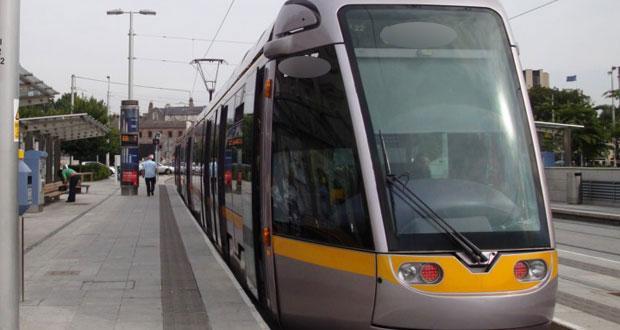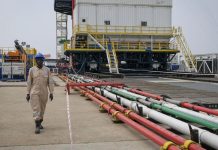Africa-Press – Mauritius. A decision has finally been made. Mauritius is to have a rail system. The fanfare and razzmatazz of the launch is being replaced by recriminations about transparency, the real cost, a nation indebted for years to come and the true legacy of the Prime Minister.
Pure poppycock, in reality it is too late to influence anything. The contract is signed and the work starts fairly promptly. The time to have put objections and register citizen complaints has long gone, 17 years too late in fact.
Just as the decision to sort out the well forecasted transport problem is 17 years too late. The 2001 Halcrow Fox report clearly gave the blueprint for traffic management in Mauritius.
It advised Government to make policy and let the business world bring in the development that has been so successful with progress in agriculture, textile and other industries in Mauritius to date.
To recap, Halcrow Fox recommended that the most urgent need was to tackle the traffic congestion around Port-Louis in the Port-Louis–Curepipe corridor and in growing settlements outside the main towns. 17 years on with the Government policy of 100% tax free for civil servants to acquire luxury vehicles as well as increased wealth in the population resulting in expanding vehicle ownership; and added to that the growth of settlements outside major conurbation there is traffic jam in Petite-Rivière, Beau-Basin, Rose-Hill, Vandermesh, Phoenix, Grande-Rivière, on the motorways, in fact everywhere.
It’s a nightmare. The report recommended that the government should concentrate on policies and control. They should leave greater responsibility for the provision of transport infrastructure and services to the private sector.
The report suggests various strategies to deal with traffic flow, cut accidents and pollution and better management of roads. In fairness, previous and current governments have implemented the recommendations made.
There have been many by-passes in the north, the Phoenix–Beau-Songe link road to the west of the island, the Port-Louis ring road, the major Port-Louis by-pass, the proposed Coromandel to Soreze bridge link and the Phoenix roundabout flyover.
But the point is that Mauritius cannot continue to build roads to accommodate the traffic. With its wish to become a high income economy and added wealth which will inevitably result in more motorcars.
If the situation remains unchecked and given the size of the island with concentration of the population on the central plateau between Curepipe to Port-Louis the roads will become car parks at peak time.
“At end of June 2016, some 496,755 vehicles were registered at the National Transport Authority compared to 486,144 at the end of December 2015, i.
e. An increase of 10,611 or 2.2%. The fleet consisted largely of cars, double cab pickup and dual-purpose vehicles (247,575 or 50%) and motorized two-wheelers (196,631 or 39%). The remaining 11% comprised vans, lorries, trucks, buses and other vehicles.
” (National Transport Authority – NTA, 2016) “At end of December 2016, some 507,676 vehicles were registered at the National Transport Authority compared to 486,144 at the end of December 2015, i.
e. an increase of 21,532 or 4.4%. ” (NTA, 2016) Mycar. mu published last May that there have been 11,187 new and second hand cars registered between January to May.
The NTA latest figures for new and second hand vehicles registered between January to June is 13,465. There is an average increase of 2,244 vehicle on our roads each month which suggest a 5,8% increase for the whole year.
At this rate, within 20 years, there will be a vehicle for each individual Mauritian on our roads. Total chaos. “Governments have prevaricated resulting in no decision making, poor communication, no consultation and firefighting actions.
The issue is not that the Metro Express is superfluous to our development given that there is already a good cheap public transport system in Mauritius. It is that successive government have failed to introduce policies that will manage the demand for vehicles and their management.
We should have learnt from other countries that have reduced traffic in urban areas by creating pedestrian only areas, short term parking in inner cities and towns for deliveries only.
Parking off road in towns and cities limited to residents only. A fee for driving through Port-Louis other than for daily deliveries. Successive governments have continually failed to engage the population to resolve the issue.
Governments have prevaricated resulting in no decision making, poor communication, no consultation and firefighting actions. The failure of Governments to have engaged the Mauritian citizens to create a responsible nation with a clear identity, leisure, a 24/7 society is alarming.
Government needed to be strong and decisive instead of thinking in the short term or whatever government thinks about, God knows! Their failure has resulted in head shaving, hunger strikes and a nanny state.
There has been no creation of leisure parks to note over the last 50 years. In fact, existing leisure areas are being taken over to facilitate the train. With the Metro Express and subsequent management of bus services, there will be a consequence of diverting the traffic problem elsewhere.
Imagine the Metro Express negotiating Vandermesh during school terms with parents escorting their children to school in their vehicles, school buses, delivery vans, school vans, buses dropping commuters to catch the metro express.
What will have changed? Less tension at Grande-Rivière and the motorway going to Port-Louis from Plaines-Wilhems? 10% less in fact. Probably an opportunity to sell more cars and clog the road within a shorter time.
What are the incentives to encourage car owners to drop their car and use the metro? Maybe the increase in fuel levied this weekend is a start which will result in other commodities going up in price.
As usual, Government fails and consumers pay. The sad thing about all this is that Mauritians are entrepreneurial. They like to graft and are ready to support good causes. Government continually ignores this resource.
The last 17 years could have been spent by the government and the people working together to develop an effective transport system instead of a feeling that the solution chosen is being imposed.
And yet there have been good examples of government and local government working in partnership with its citizen elsewhere which has resulted in effective transport systems (Manchester, Gold Coast, extension of the metro in London).
It is to be noted that where the tram, metro, Light Rail Transit has been a success, it has been years of sustained public policies promoting alternative travel and different lifestyle.
It has involved the citizens in the decision making. But still most of these places have had difficulties reducing traffic congestion. There is also the Edinburgh’s experience which should be a warning to the Mauritian Government.
The Edinburgh tram failure was due to the inability of planners to grasp the basic principles of network planning and integration. We, in Mauritius, do what we do best: wait for the crisis and then act.
Hence, we are now probably faced with more head shaving, hunger strikes and piecemeal information. The development of the metro will bring its own chaos during construction and that is to be expected. But the opportunity to engage the nation is hopefully not lost.
Mauritians will make anything a success if government puts them first and actively addresses the issues of poverty, replaces amenities lost with better ones, creates new parks, upgrades all roads, ensures safe pedestrian negotiation of our roads, ensures current transport workers are involved in the metro project and their jobs enhanced as a result of this major change. Is the Government the listening collaborative kind? Time will tell.
For More News And Analysis About Mauritius Follow Africa-Press







